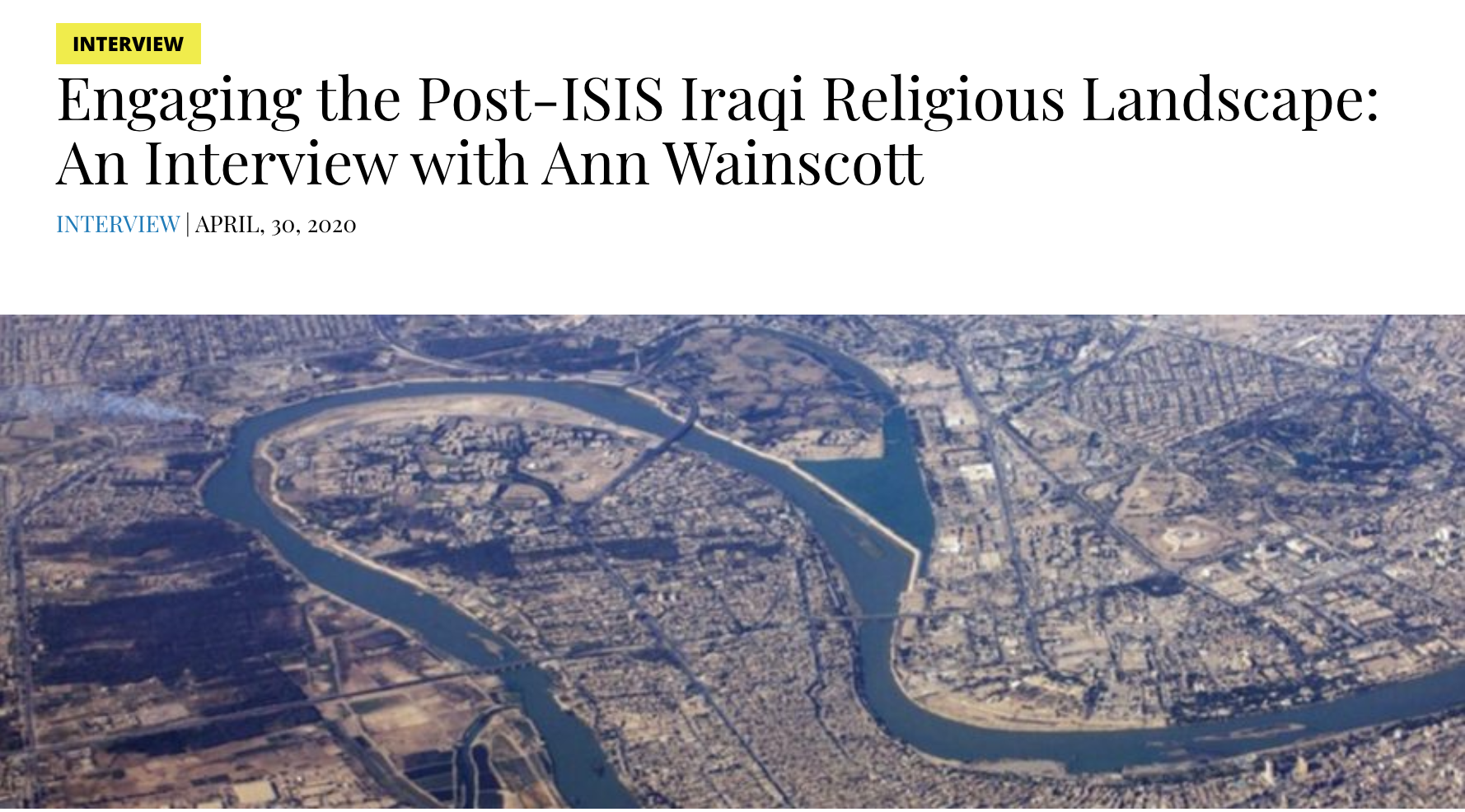How should policy makers and peace practitioners engage the post-ISIS landscape of Northern Iraq? What principles are applicable in other conflict-affected states?
These questions were part of a United States Institute of Peace (USIP) report authored by Ann Wainscott, Assistant Professor of Political Science at Miami University in Ohio. As part of USIP’s Religious Landscape Mapping in Conflict-Affected States program, Engaging the Post-ISIS Iraqi Religious Landscape for Peace and Reconciliation aims to fill an information gap to help inform policy and programs.
Jeremy Barker, Director of RFI’s Middle East Action Team, interviewed Professor Wainscott on her new report for Religion & Diplomacy, an online portal of the Transatlantic Policy Network on Religion and Diplomacy based in Cambridge, UK.
The interview reviews key points from the report and lessons policy makers can apply when working in conflict and crisis-affected societies:
Wainscott: In times of conflict, it can be tempting to move quickly, in an attempt to bring about an end to violence. But lasting solutions are born of methodical and often-times painstakingly slow efforts at building relationships and partnerships with key players. Long before a conflict is resolved, diplomats and development practitioners can begin cultivating relationships with key leaders across all sectors, including religious actors, but also economic, political and social actors. Looking for areas of shared interest, and keeping lines of communication open will long-term benefit all involved, even when there are serious and sustained disagreements about some issues.
Read the full interview: https://religionanddiplomacy.org.uk/2020/04/30/engaging-the-post-isis-iraqi-religious-landscape-an-interview-with-ann-wainscott/
Related Resource: Guidance Note: Protecting Vulnerable Religious Minorities in Conflict and Crisis Settings
THE RFI BLOG

Does Southeast Asia Lead the World in Human Flourishing?

RFI Leads Training Session on Religious Freedom Law and Policy for U.S. Army War College

Oral Argument in Charter School Case Highlights Unconstitutional Motives Behind OK Attorney General’s Establishment Clause Claim

Largest Longitudinal Study of Human Flourishing Ever Shows Religion’s Importance

Keys To Human Flourishing: Faith And Relationships Outweigh Wealth
CORNERSTONE FORUM

Reaffirming Religious Freedom: Bridging U.S. Advocacy and Iraq’s Constitutional Framework

Political Polarization, Same-Sex Marriage and Religious Liberty

Bridging the Gap Between International Efforts and Local Realities: Advancing Religious Freedom in the MENA Region

Challenges to Religious Freedom in Iraq and the Critical Need for Action


